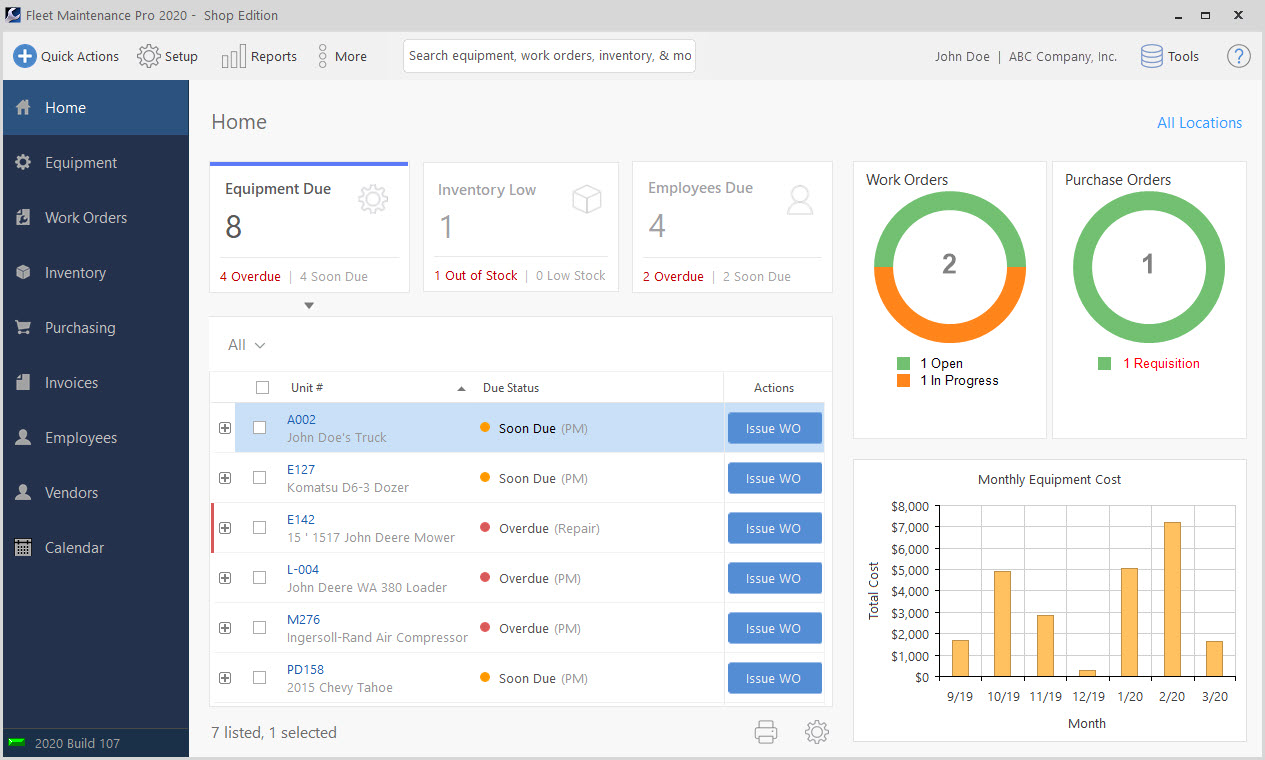Optimize Fleet Procedures With Cutting-Edge Software Program Solutions
In the realm of modern fleet management, the integration of sophisticated software application options has ended up being extremely important for services aiming to simplify their operations and boost general efficiency. As modern technology continues to advance, the use of innovative devices and platforms has actually transformed the means fleets are handled, supplying a myriad of benefits varying from optimized course planning to real-time monitoring capabilities. The true power exists in the harmony of these options and their capacity to not only deal with present functional challenges however likewise lead the method for future growth and success. The essential to opening this prospective lies in embracing a holistic approach that incorporates various software applications to develop a cohesive and data-driven environment.
Advanced Path Optimization Equipment
Enhancing fleet operations through the implementation of advanced route optimization devices is essential for boosting performance and lowering prices. These devices take advantage of advanced technology to streamline course preparation, making sure that automobiles are taking the most efficient courses to reach their locations - evolve fleet management. By evaluating various variables such as web traffic patterns, climate condition, and distribution home windows, these tools can create enhanced routes that minimize gas usage and decrease vehicle driver still time
Advanced route optimization devices likewise provide real-time updates and signals, enabling fleet managers to adjust to changing circumstances on the fly. This adaptability enables quicker feedback times to unforeseen occasions, such as traffic jam or final distribution demands, improving total customer contentment.
Furthermore, these devices provide understandings into motorist performance and automobile utilization, aiding identify locations for improvement and cost-saving possibilities. By optimizing paths and taking full advantage of sources, fleet operations can attain higher performance degrees and ultimately drive productivity. In today's competitive service landscape, purchasing advanced path optimization devices is a calculated choice that can generate considerable functional benefits.
Real-Time Fleet Tracking Solutions
Real-time fleet monitoring remedies play a critical function in improving functional visibility and performance for businesses managing a fleet of vehicles. By using GPS innovation and advanced software application, these options supply real-time updates on lorry area, rate, and condition. This level of transparency enables fleet managers to make informed decisions promptly, leading to improved route preparation, lowered gas usage, and much better overall fleet utilization.
With real-time fleet monitoring, organizations can monitor chauffeur habits, ensure adherence to timetables, and enhance customer care by offering exact arrival times. The capability to track automobiles in real-time likewise enables fast action to unforeseen delays, such as website traffic congestion or road closures, aiding to reduce disruptions and keep service degrees.

Automated Maintenance Monitoring Solution
With the foundation of real-time fleet monitoring services in place, organizations can improve their functional effectiveness better by integrating automated upkeep administration systems. These systems streamline the upkeep procedure by automating tasks such as scheduling routine maintenance, tracking lorry repair services, and managing stock for extra parts. By applying automated maintenance monitoring systems, services can reduce downtime, prolong the life-span of their fleet cars, and decrease unforeseen failures.
One of the vital benefits of automated maintenance monitoring systems is the capability to set up maintenance based on real vehicle use and efficiency data. This positive approach assists protect against costly repair services by addressing problems prior to they escalate. Furthermore, these systems give real-time insights into the wellness of each lorry in the fleet, allowing fleet supervisors to make data-driven decisions and prioritize maintenance jobs successfully.
Improved Motorist Interaction Systems

Boosted driver communication platforms also empower chauffeurs by offering them with tools to report issues, communicate with dispatchers, and gain access to essential info on-the-go. This streamlined communication not only improves chauffeur complete satisfaction but likewise enhances general productivity and performance. Additionally, these systems usually supply capabilities such as click for source digital logging and efficiency analytics, providing fleet managers valuable understandings right into motorist habits, car usage, and operational performance.
Data-Driven Efficiency Analytics
To additionally optimize fleet operations and boost decision-making processes, leveraging data-driven performance analytics is essential. By taking advantage of the power of advanced analytics tools, fleet supervisors can acquire valuable understandings into various elements of their operations, consisting of automobile performance, vehicle driver habits, gas effectiveness, and maintenance timetables. These analytics allow supervisors to determine trends, patterns, and outliers that can affect operational performance and cost-effectiveness.
Through data-driven efficiency analytics, fleet managers can track vital performance indications (KPIs) in real-time, permitting proactive decision-making and prompt interventions to deal with any problems that may occur. By checking aspects such as car use rates, idle times, and course effectiveness, managers can optimize fleet sources, minimize gas consumption, and decrease downtime. Additionally, efficiency analytics can aid identify chances for procedure improvements, training efforts, and strategic investments to improve total fleet performance.
Final Thought
In verdict, optimizing fleet operations with sophisticated software options can substantially improve efficiency and efficiency. By using Source innovative course optimization tools, real-time fleet tracking services, automated upkeep administration systems, boosted driver communication platforms, and data-driven performance analytics, companies can improve their procedures and minimize prices. These technical innovations enable better decision-making and overall fleet management, resulting in a more effective and competitive company design.